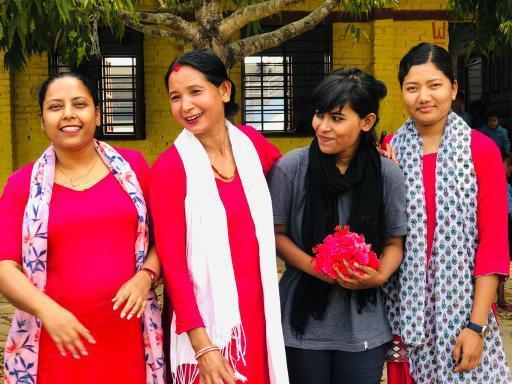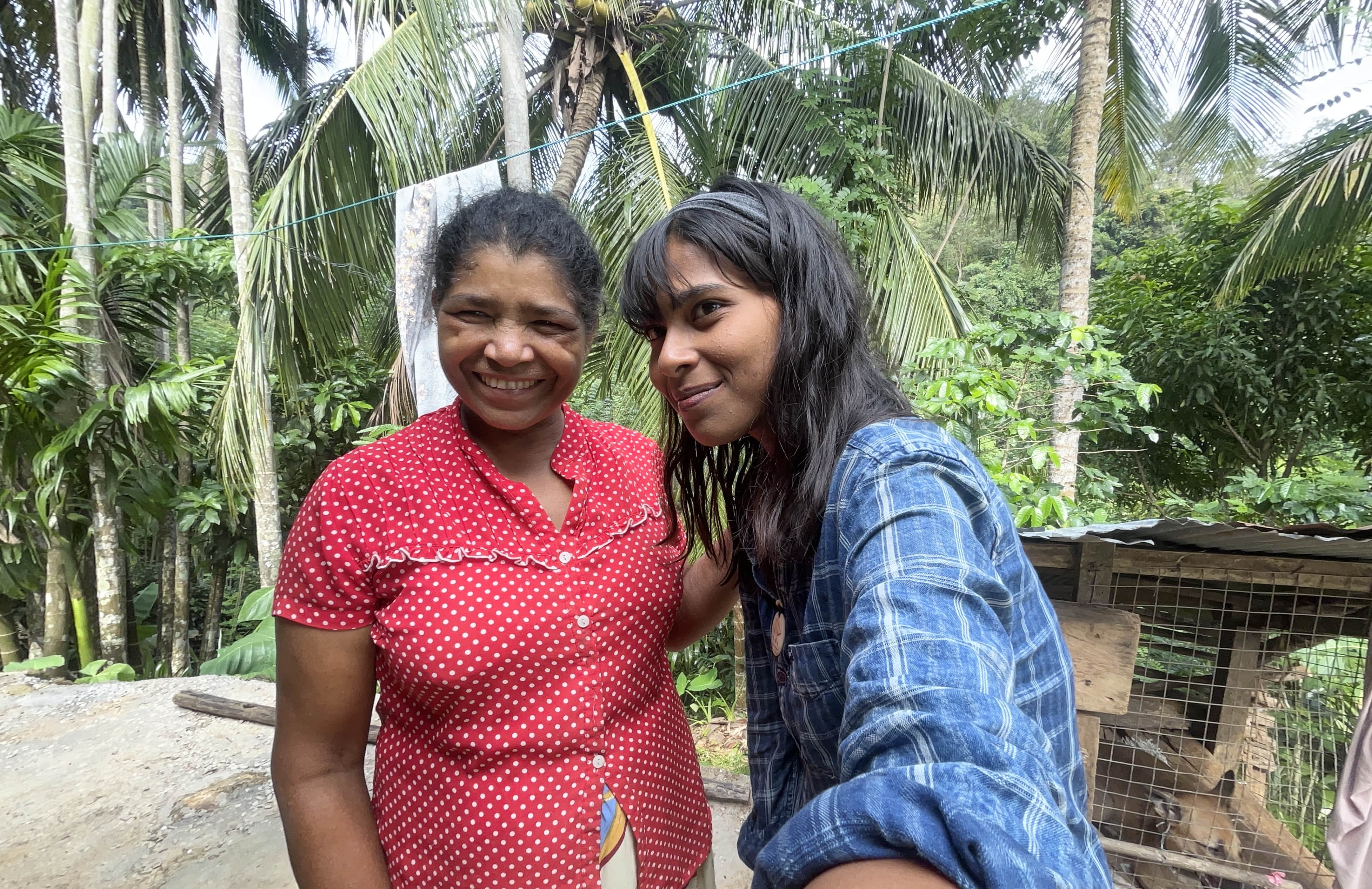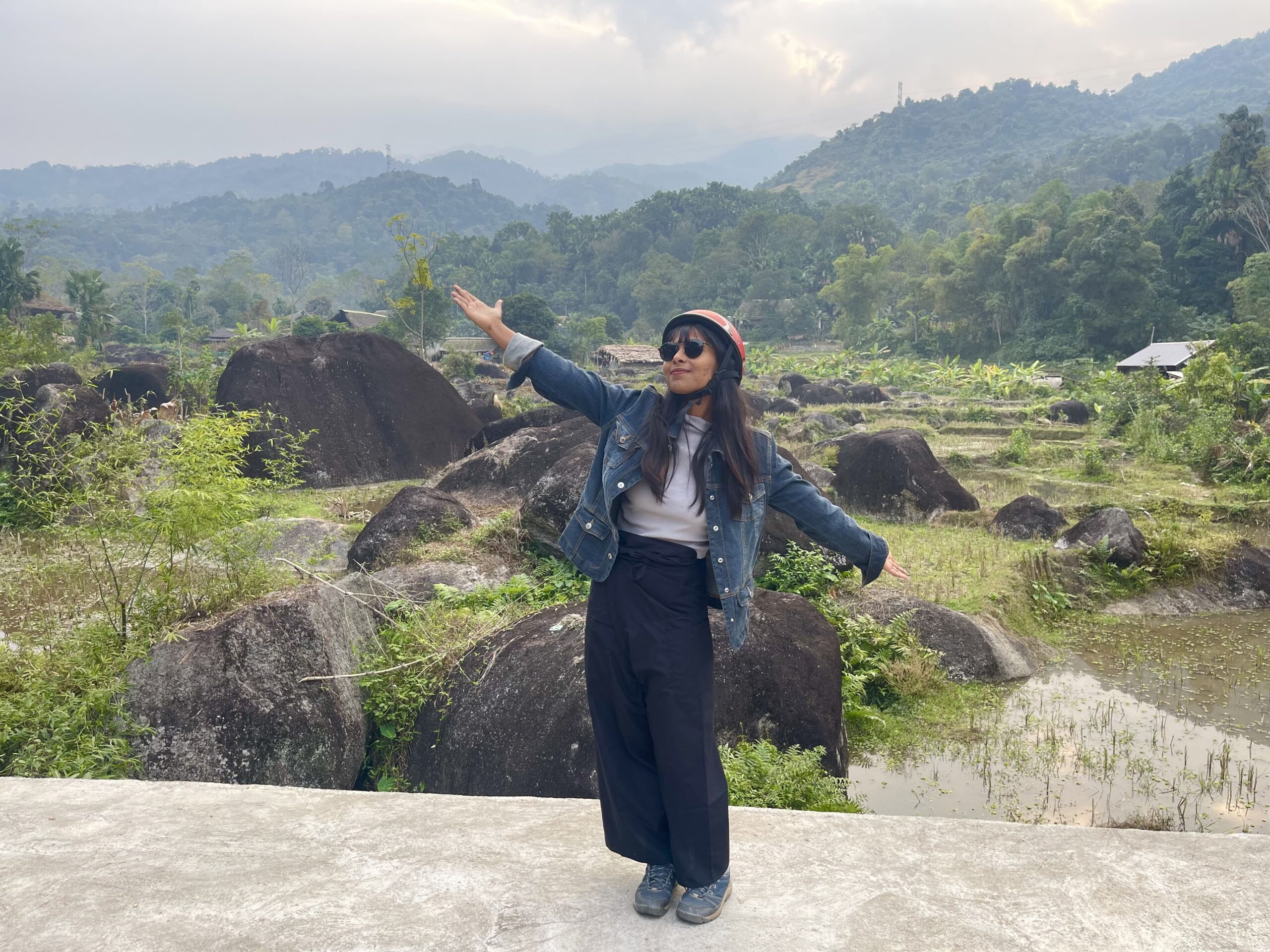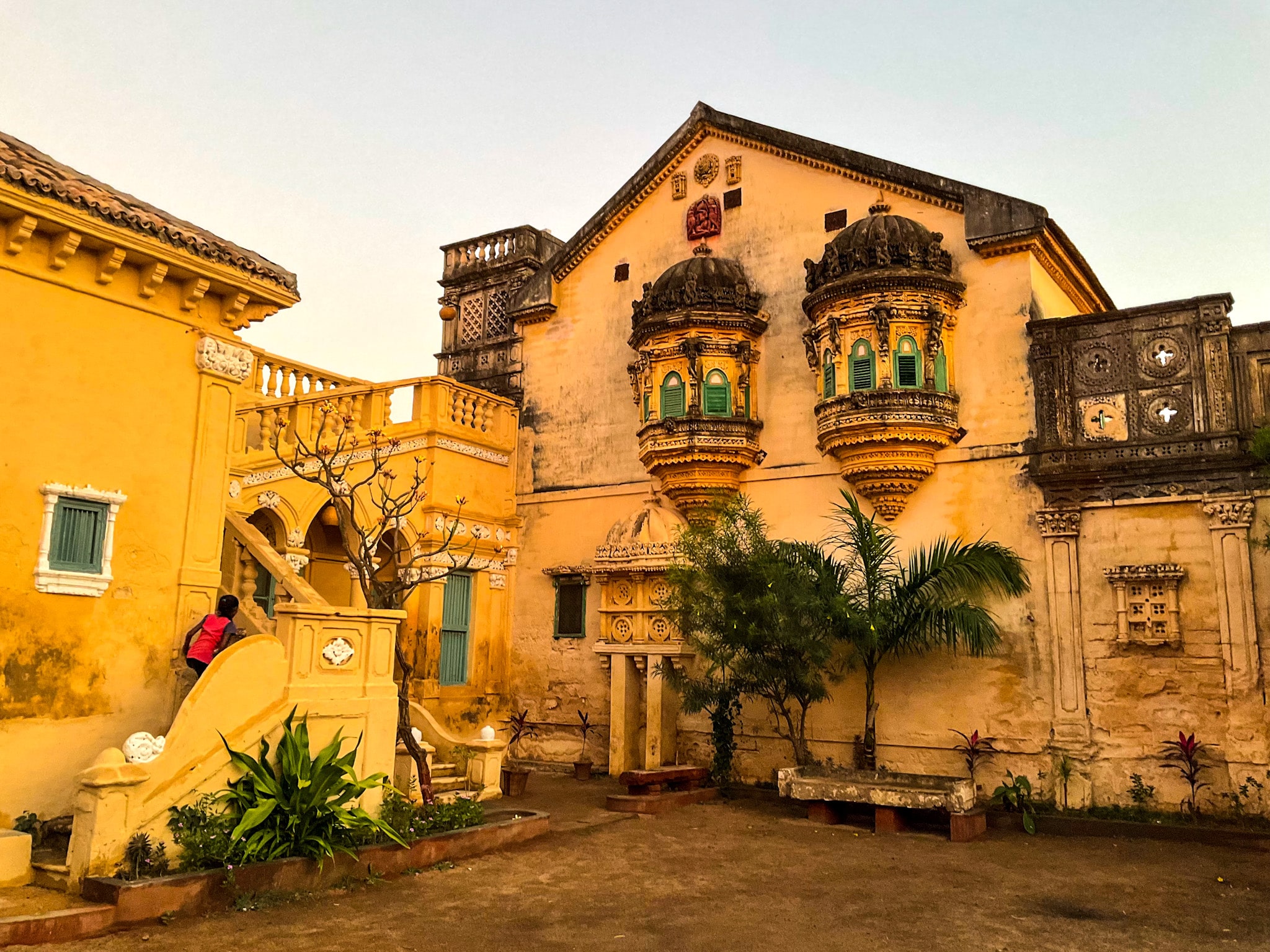Volunteer Tourism, more than a niche. Travelling with a unique eye broadens the knowledge pool, sharpens old skills, and introduces you to new understandings. In this article, you will get to know where to look for volunteering opportunities while travelling!
Life, culture, tradition, the art of living… How do you plunge into human choices? With time and participation. If it wasn’t for those moments of participation, the people in ‘people’ would probably have shelled me inside a walled box. With volunteering came limitless invitations to the front doors and windows of the locals of the land. When you engage with people through their lives, it’s their journey with you.

As I prepare for gurayi on acres and acres of bamboo fields, they bring me tea and set the plate with farm-ready cucumbers and radishes.
As I paint the nursery walls with numbers and alphabet in a make-believe jungle, they huddle around in camaraderie. Those inclusive moments brought me the relevant time and space through action that hugs the spirit of life and human beings.
So, What is Volunteer Tourism?

The idea is simple: travelling while volunteering. Two strands that commingle in sustainable travel experiences, only I didn’t know it was possible until I stumbled upon Workaway, and thousands of digital nomads who sustain their lives on the road this way.
‘Besides the influence on the local economy, several positive impacts that are mentioned by respondents are of a social nature, such as the strengthening of the community, enhancing education, or improving the quality of life of residents.’ A research paper showing both the positives and the negatives of volunteer tourism, ‘As the literature explains, the lack of training can be detrimental to the development of the local programs but even worse for the host community. This situation leads to wasted and underutilized resources for the participant (Garrison, 2015), as well as for the organization and the destination.’
How Volunteer Tourism Differentiates Itself from Any Other Tourism

-2 degrees Celsius. I am resting on a light purple bench with the smudged yellow sun against a dark yellow sky. Rawat Bhaiyaa made a sound, a high-pitched wavy sound he bellows to call out the goats. The goats often do not reciprocate with a ‘byaaa’…. They are creatures of their own, and they fall off the sloppy mountain-slides more often than ever.
Volunteers add flairs, and transport ideas. If a community holds a base, a new person can add colour to it. But short-term effects become temporary loopholes when there are no permanent workers to take it forward.
‘A tiger was here last night. He took one of my goats.’ mumbled Rawat Bhaiyaa, puzzled. He didn’t look particularly sad. He is used to the loss.
For three months in Toliyon Uttarakhand (an on-and-off rendezvous), working on a farm, I felt the limbs of Rural India, the knowns I had known only through books and articles. Here I was, living it in this communion of love and knowledge.
This village changed me by length. Would I have ever gone to this mountain-top village shying away from any kind of tourism? Om Bhaiyaa, the pradhan (head of the village), initiated English community classes for the kids in village Markhora, and I accompanied him. But now that I am gone, what has happened? He is waiting for another volunteer to drop in. The kids are waiting too.
Also read – Is Travelling/Hitchhiking across India Safe for Solo Female Travellers?

Beyond the Agra-Lucknow-Varanasi tour, I wanted to know the rural life in Uttar Pradesh and Bihar. Workaway allowed me to live with a Muslim family in a Hindu-dominant village, a hundred kilometers away from Lucknow. A place where washrooms are still storerooms, and schooling is hardly a necessity.
The nursery class; Ahat, Farhad, Komal, Farhan, Ayush… I was teaching them Hindi, English, and Mathematics, renovating their classroom with a boat, painting walls with animals, trees, and numbers, and unintentionally relishing Ammi’s banana kebabs in a peacock-dwelling. The painted walls remained, but not my way of teaching.
Be it sustainable tourism, responsible tourism, or slow traveling, it all combines with volunteer tourism. In the long run, it sustains itself in mindful exposure to diverse cultures for both the traveller and the host. But it has altercations. Let’s talk about that.
Also read – Painting in the Monsoons of Kathmandu Nepal
How to Prevent Turning It into A Fruitless Experience?

What if the Volunteer Is Not Skilled?
First, as a volunteer, you need to be sure about the skillset you can advocate with confidence. The opportunities vary; farming, gardening, teaching, social media management, mudhouse building, cooking, painting, DIY projects, upcycling, general management, writing blogs, web designing… And special requirements as per the region. For example, on a farm in Udaipur, you can take care of horses, and in return, they teach you horseback riding for free.
In my opinion, you should have a primary skill to offer with all earnestness and self-reliance. If your curiosity allows you, you can learn other skills on the go. You don’t necessarily have to be a full-functioning master in them. Only curiosity and an understanding of the basics would ride long. But is that productive for the host?
Depends on the activity. If it’s something too complex to learn in the short term, attempting that in two weeks could mean unproductive wanderings. But if it’s easily grasping or more labor-induced (for that too, a knowledgeable head needs to be present to supervise), the process can give birth to productive results.
With hands-on skills like farming, you can learn and apply in bits.
Also read – Kasar Devi in Almora – The Worst Volunteering Experience
Does the Host Community Benefit from Outsiders?

The decision is skill-specific. E.g. with painting, art-and-crafting, videography, and building constructions; the skill-outcomes that end with the provider’s contribution are beneficial for the host community. The skills that need no extension, or the necessity to be carried on. The volunteer starts it, produces the end-product, and leaves.
On the other hand, social media management, digital marketing, handling websites, or teaching need an open-ended extension. There is no end point, at least in the short term. The only way is to pass on the knowledge to a local, who can take the initiative forward. If a person spends two weeks, she can teach how to do social media, instead of doing it herself, because she will be gone in two weeks! Then what?
Far into my own projects, I realized this more and more while doing a bit of marketing for a local start-up in Tirthan Valley Himachal, where the local trekkers were fully prepared for the fieldwork, with no knowledge of marketing themselves online. For a month I upscaled them on social media with SEO-friendly content, quality pictures, and well-edited videos, but now they post nothing anymore. They don’t have the virtual understanding. I should have taught them the technicalities alongside.
If it wasn’t for those moments of participation, the people in ‘people’ would probably have shelled me inside a walled box.
Are Short-Term Effects Good Enough?
I believe so. Volunteers add flairs, and transport ideas. If a community holds a base, a new person can add colour to it. But short-term effects become temporary loopholes when there are no permanent workers to take it forward. Volunteers don’t run a community. They beautify it. Without it, the short-term effects lose relevance in the long run.
Volunteering is Not A Full-Time Job

Volunteering is a voluntary act. Do not fall into exploitation. You would always find some hosts who would exploit your willingness and dedication. It should be for a maximum of five hours a day and five days a week in exchange for food and accommodation. Get that clear with your host, or any other term you may have.
Volunteers are not full-time workers. In some Facebook groups like Himalayan Volunteer Tourism, I see business-owners seeking volunteers for full-time jobs. This is a way for hosts to reduce costs, money that could have gone to a local professional.
How Can You Find These Opportunities on the Go? (Through Workaway)

Workaway and Worldpackers – are two of the most-used platforms for such opportunities all around the globe. Workaway works in more than 100 countries across Europe, Asia, Africa, Oceania, South America, Central America, North America, and the Middle East. Now, how do you communicate on Workaway? I would give you thorough end-to-end bullet points to guide you through the entire process.
- On Workaway, you can go through volunteering projects simply by visiting their website. You don’t have to subscribe to their annual membership to look around for opportunities.
- But you do have to pay an annual sum of $49 for an individual account and $59 for a couple account, to connect with the hosts and confirm the projects. During this one year, you can connect with an unlimited number of hosts.
- Once you sign in along with the payment, the world unfurls. Every project has the following segments; minimum stay, host requirements, months of availability, and host contact. If the host requirements match your skill set, and that project provokes you, you need to send a message to the host with some details about you, your interest in the project, the number of days you can contribute, and why you would like to jump on to this particular opportunity.
- That’s it, wait for the host to revert, either with a confirmation or maybe they don’t need anyone at that moment.
Just for the last time, as a volunteer, you have to spend 3-5 hours of your time five days a week. In exchange, your food and accommodation become free of cost. You can explore freely for the rest of the day.
How has Volunteer Tourism shaped your experiences?
Support my solo adventures across the globe by joining the Patreon community!
Live the Adventure
Get weekly articles delivered to your doorstep and stay up-to-date with my new travel stories.





Leave a Reply